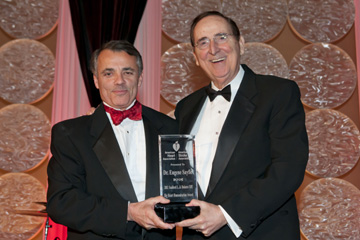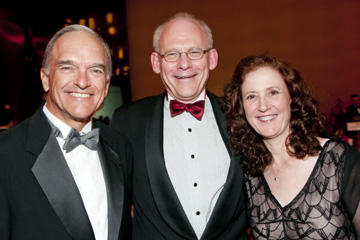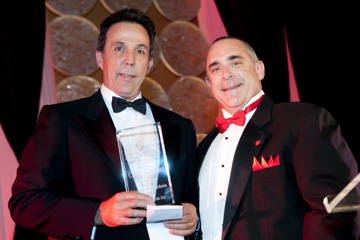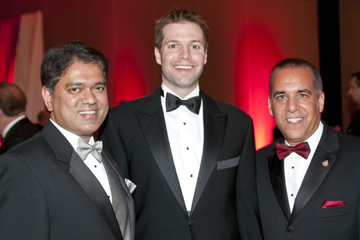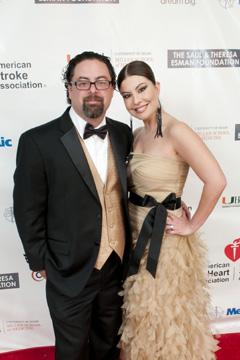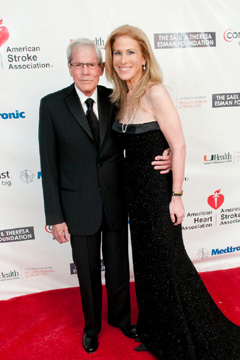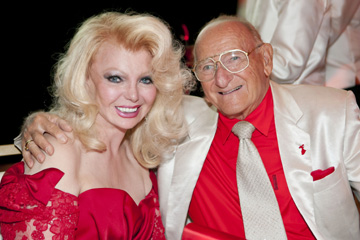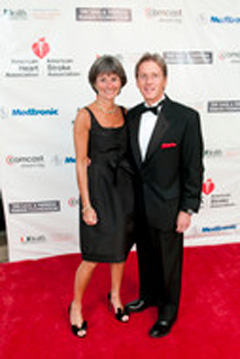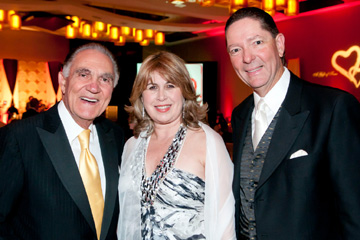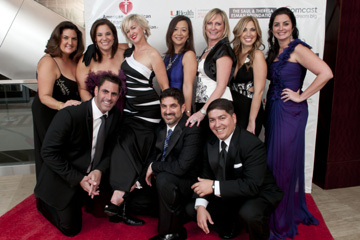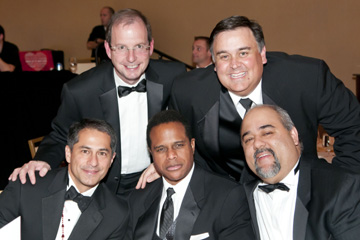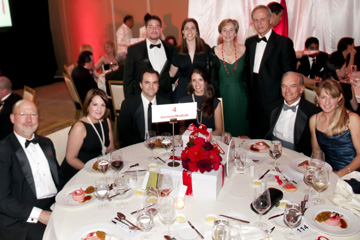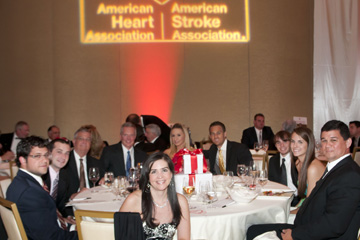American Heart Association’s Miami Heart & Stroke Ball Celebrates “A Gift of Time”
43rd annual event honors esteemed members of the medical community
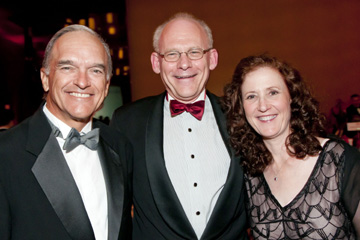

University of Miami Hospital Chief Executive Officer, Anthony M. Degina Jr., and his wife, Kristin, served as Heart Ball Chairmen. Dr. William O’Neill, Chief Medical Officer and Executive Dean of Clinical Affairs, University of Miami Miller School of Medicine, was the Medical Chairman. Master of Ceremonies was Javier Romero from Univision’s AMOR 107.5.
Guests enjoyed a silent auction and cocktail reception prior to entering into the Metropolitan ballroom where the “A Gift of Time” theme played out and gift boxes with an attached clock served as table centerpieces. They enjoyed a multi-course gourmet dining experience, heard heartfelt testimonials from a heart disease survivor and stroke survivor and generously gave “from the heart for the heart” in financial contributions that’ll go toward lifesaving research, education and community programs.
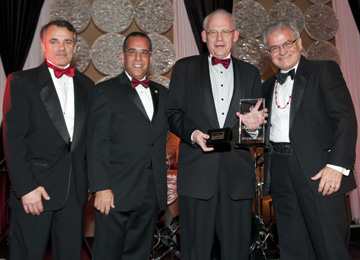
This year, the Miami Heart & Stroke Ball celebrated the leadership of Dr. Ralph L. Sacco, Professor and Chairman of the Department of Neurology for the University of Miami’s Miller School of Medicine and President of the American Heart Association and American Stroke Association. Sacco is the first neurologist in the history of the organization to serve in this capacity. During the special Cor Vitae Awards presentation, the organization honored esteemed members of the Miami medical community with prestigious awards for their professional accomplishments in advancing the treatment and prevention of heart disease and stroke, which are the No. 1 and No. 3 killers, respectively, of American men and women.
The American Heart Association and American Stroke Association presented the 2011 Sanford L. and Dolores Ziff Big Heart Humanitarian Award to Dr. Eugene Sayfie, Medical Director of the Executive Medicine Program and Cardiologist at the University of Miami M. Miller School of Medicine.
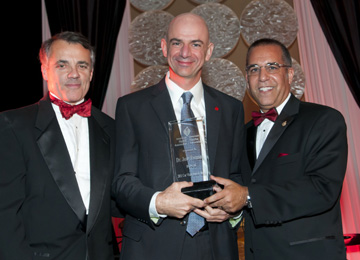
Sacco said, “Not only do these physicians do their own work to save lives in our community, but their work enables others to better treat and prevent heart disease and stroke.”
Nearly 2,400 Americans die of cardiovascular diseases each day, an average of one death every 37 seconds. Each year, about 780,000 people experience a new or recurrent stroke.
Sponsors of the 2011 gala included: UHealth – University of Miami Miller School of Medicine, Medtronic, Siemens/Med-Lab, Comcast, All-Med Services of Florida, Chartwells, Dade Medical College, DMR, Diana Block and Royal Caribbean Cruises Ltd., MCCI, McGladrey, Shutts & Bowen LLP, Stearns Weaver Miller Weissler Alhadeff & Stitterson P.A., and The Doug Williams Group. Media Sponsors were Comcast, Selecta Magazine and SocialMiami.com.
The American Heart Association and American Stroke Association will continue their aggressive efforts to combat these deadly diseases and celebrate future successes at the 2012 Miami Heart & Stroke Ball which will be led by Michele Chulick and Ian Pesses and George and Marla Bergmann.
